Would you believe me if I told you that the biggest news story of our century is happening right now—but is never mentioned in the press?
如果你我告訴你,我們這個世紀最大的新聞事件正在發生——但從未被媒體提及,你會相信嗎?
That sounds crazy, doesn’t it?
這聽起來很瘋狂,不是嗎?
But that is often the case when a bold new worldview appears.
但當一個大膽的新世界觀出現時,情況往往就是如此。
How long did it take before the Renaissance got mentioned in the town square?
文藝復興在市鎮廣場上被提及之前,花了多久時間?When did newspapers start covering the Enlightenment?
報紙何時開始報導啟蒙運動?Or the collapse in mercantilism?
或是重商主義的衰落?Or the rise of globalism?
或是全球主義的崛起?Or the birth of Christianity or Islam or some other earthshaking creed?
或是基督教、伊斯蘭教或其他震撼世界的信仰的誕生?
The biggest changes often happen long before they even get a name. By the time the scribes notice, the world is already reborn.
最大的變革往往在尚未被命名之前就已發生。等到書記們察覺時,世界早已重生。
You can take this to the bank: If the New York Times notices the Buddha, the enlightened one has already left town.
你可以把這當作定論:如果《紐約時報》注意到佛陀,那位覺者早已離開城鎮。
For example, the word Renaissance got introduced two hundred years after the start of the Renaissance. The game was already over.
舉例來說,「文藝復興」這個詞在文藝復興開始兩百年後才被提出。遊戲早已結束。

《雅典學院》(來源)
The same is true of most major cultural movements—they are truly the elephants in the room. And the elites at the epicenter of power are absolutely the last to notice.
大多數主要的文化運動也是如此——它們真的是房間裡的大象。而位於權力中心的精英們絕對是最後才察覺到的。
Tiberius may run the entire Roman Empire, but he will never hear the Good News.
提比略可能統治整個羅馬帝國,但他永遠不會聽到福音。
There’s a general rule here—the bigger the shift, the easier it is to miss.
這裡有一個普遍規律——變化越大,越容易忽略。
We are living through a situation like that right now. We are experiencing a total shift—like the magnetic poles reversing. But it doesn’t even have a name—not yet.
我們現在正經歷著這樣的情況。我們正在經歷一場徹底的變革——就像磁極反轉一樣。但它甚至還沒有一個名字——至少現在還沒有。
So let’s give it one.
讓我們給它一個名字。
Let’s call it: The Collapse of the Knowledge System.
我們可以稱之為:知識系統的崩潰。
If you want to support my work, the best way is by taking out a paid subscription (just $6).
如果你想支持我的工作,最好的方式是訂閱付費訂閱(只需 6 美元)。
We could also define it as the emergence of a new knowledge system.
我們也可以將其定義為一個新知識系統的出現。
In this regard, it resembles other massive shifts in Western history—specifically the rebirth of humanistic thinking in the early Renaissance, or the rise of Romanticism in the nineteenth century.
在這方面,它類似於西方歷史上的其他巨大轉變——特別是文藝復興早期人文主義思想的復興,或是十九世紀浪漫主義的興起。
In these volatile situations, the whole entrenched hierarchy of truth and authority gets totally reversed. The old experts and their systems are discredited, and completely new values take their place. The newcomers bring more than just a new attitude—they turn everything on its head.
在這些不穩定的情況下,整個根深蒂固的真理和權威層級徹底顛倒。舊的專家及其系統被貶低,全新的價值觀取而代之。新來者帶來的不僅僅是一種新態度——他們將一切顛倒過來。
That’s happening right now.
這正是目前正在發生的事情。
“In these volatile situations, the whole entrenched hierarchy of truth and authority gets totally reversed.”
「在這些變動不居的情況下,整個根深蒂固的真理和權威層級徹底顛倒。」
The knowledge structure that has dominated everything for our entire lifetime—and for our parents and grandparents—is collapsing. And it’s taking place everywhere, all at once.
我們一生中——以及我們的父母和祖父母一生中——所主宰一切的知識結構正在崩潰。而且這種情況正在各地同時發生。
If this were just an isolated situation—a problem in universities, or media, or politics—the current hierarchy could possibly survive. But that isn’t the case.
如果這只是一個孤立的情況——大學、媒體或政治的問題——現有的體制可能還能夠倖存。但情況並非如此。
The crisis has spread into every sector of society which relies on clear knowledge and respected authority.
這場危機已經蔓延到社會中每一個依賴清晰知識和受尊敬權威的領域。
THE COLLAPSE OF THE KNOWLEDGE SYSTEM
知識系統的崩潰
Let me list ten signs of this collapse. You will recognize each of them individually. Each symptom is familiar.
讓我列出這場崩潰的十個跡象。你會認出每一個跡象。每一個症狀都耳熟能詳。
But what does it mean when all these things happen at the same time?
(1) Scientific studies don't replicate.
The whole foundation of science is based on trust that its claims can be replicated and validated. But we now see the opposite—40% or more of published studies fail to replicate. Even worse, the fake studies get cited more often than reliable ones.
(2) Public distrust of experts has reached an intensity never seen before.
I first wrote about this a decade ago—citing the uncanny accuracy of José Ortega y Gasset’s book The Revolt of the Masses (1929).
And the New York Times finally noticed yesterday. Better late than never, I guess.
But even now, the Times thinks this is just happening in one city, and one sector of the knowledge economy. But, in reality, it’s taking place everywhere and in all spheres of expertise.
The only experts who still possess authority are blue collar ones. The public still wants to hire the best plumber or car mechanic or hair stylist, and will pay more if these workers have established a reputation for expertise. But the expertise of white collar professionals is derided at every turn.
When I revisited this subject a few months back, I could see that we have finally reached a breaking point. Experts are now shunned and derided even on their home turf and inside their gated communities. This may be the clearest indicator that the knowledge system is dying.
(3) The career path for knowledge workers is breaking down—and many only have unpaid student loans to show for their years of training and preparation.
The shift here has been rapid and shocking. Not long ago, students were told “learn to code”—and that three-word phrase summed up the dominant worldview. Hard knowledge and technical skills were priceless, and everything else was worthless, a waste of your tuition dollars.
But now “learn to code” sounds like a joke. Knowledge workers are getting fired everywhere. Art history majors now have an easier time finding a job than computer engineers.
Many are still in denial. Everybody took the established knowledge system for granted. That idea that it could crumble—and take away all the jobs with it—was beyond anything they could comprehend.
The New York Times also noticed this shift—last month. That’s when the Gray Lady finally published this opinion piece.
But, once again, they are seeing this as an isolated trend. They have no idea that the entire knowledge system is collapsing—and that’s because they’re sitting at the center of it.
(4) Funding for science and tech research is disappearing in every sphere and sector.
Here’s another shift that happened so fast, nobody was prepared. The whole technology and science power structure requires research—and somebody must pay for it. But, in very short order, the major sources of funding have dried up.
This is more than just a change in government policy. Even the huge corporations that fund their own research programs are now investing in AI data centers, not scientists. Somebody should measure this, but I’m confident that the shift from human-driven R&D projects to capital equipment investing is enormous.
That’s why Meta is preparing for layoffs. That’s why Microsoft is getting rid of software jobs. That’s why Google is elminating people.
I need to emphasize that this is NOT a short term economic trend. Even the most successful tech companies are losing their appetite for human-driven research projects.
(5) Universities have lost their prestige, and have made enemies of their core constituencies.
This is also in the news recently—you may have noticed.
But the criticisms have been building up for many years. Tuition costs have skyrocketed. The value of the degrees have plummeted. Meanwhile the leading universities have built up huge, stultifying bureaucracies—that seem self-serving and disconnected from educational priorities.
Vultures are now circling over these campuses, and we’ve quickly moved into full blown crisis mode. But this wouldn’t be happening if universities hadn’t irritated (or even betrayed) so many constituencies over the last 25 years.
(6) Plagiarism is getting exposed at all levels from students to corporations—and all the way to Harvard's president. But the authorities just take it for granted.
A healthy knowledge system requires honesty and accountability, and not long ago this was taken for granted. But plagiarism is now everywhere, and taken for granted. It’s even embedded in the dominant technologies and institutions.
(7) AI is imposed everywhere as the new expert system. But when it hallucinates and generates ridiculous responses, the authorities (again) take this for granted.
I’m citing many abuses here. But the most alarming fact is how the people running the knowledge system complacently accept all the deceit, lies, and hallucinations. They do so without any ethical qualms or even anxiety.
And they never, ever apologize.
The public now smells the rot. They see that the people who control the knowledge system have been shamefully irresponsible. This creates a paradoxical situation in which the very speed and intensity with which new tech is implemented actually accelerates the collapse of the entire knowledge hierarchy.
The more you force it on people, the more they hate it.
I remember a truism from product marketing. The rule was: Nothing is more damaging than a successful launch of a inferior product. Your short-term success ensures your long-term failure.
That’s a lesson that the tech regime apparently has not learned (yet). But will learn (soon).
(8) Science and technology are increasingly used to manipulate and exploit, not serve.
People now see actual degradation in every sphere of technology.
Software upgrades are so bad that users actually fear them.
Search engines get worse every year.
Social media becomes more psychologicallly manipulative and destructive.
Active campaigns to limit smartphone use are now spreading in schools and communities.
Surveillance increases, and privacy erodes.
Etc.
Everybody now notices this—how can you not notice it? We rely on the knowledge industries for so many products and services, and the speed of degradation and deterioration has reached a crisis level.
(9) Scandals are everywhere in the knowledge economy (Theranos, Sam Bankman-Fried, collapsing meme coins, COVID, etc).
Tech startups were once admired, praised, and emulated. But they are now treated with intense scrutiny and skepticism.
There have been too many scandals, too many frauds, too many cover-ups. These are so common that the media hardly even reports on them anymore.
For example, a few days ago, we learned that a touted $1.5 billion AI company funded by Microsoft actually relied on 700 workers in India pretending to be chatbots. The AI company didn’t use AI—it was all a scam. Not long ago, that would have been a huge scandal and Hollywood would make a movie about it. But nowadays, scams of this sort are just business-as-usual in the tech world.
I regularly report on scandals at Spotify and other entertainment tech companies. But nobody is shocked anymore. They lost trust in knowledge tech industries long ago.
(10) We hear constant bickering about “fake science”—from all political and ideological stances. Nobody talks about “true science.”
Have you heard the complaints about “fake science”?
Of course you have. This phrase is everywhere. Here’s a measure of its use in print, courtesy of Google.
Democrats accuse Republicans of fake science. But Republicans also make the same charge at Democrats. I’m not sure anybody really wins in these arguments, but I can tell you who loses—namely science itself.
But, as you can see from the chart, the term “fake science” hardly existed during the 20th century. In those days, science was considered emblematic of truth. If it was fake, it wasn’t science.
But when the knowledge structure collapses, science loses its privileged access to truth. At the final stage, it gets harder and harder to distinguish science from propaganda. We are now living in that nightmare scenario
I could list more symptoms of the collapsing knowledge system. But these should be sufficient to catch your attention.
Now stop and consider the peculiar coincidence that these ten problems are all happening simultaneously.
That can’t be coincidence.
Why isn’t this discussed openly—in media, in universities, in public discourse? Everything I’ve mentioned above is public knowledge. So why aren’t the experts discussing it?
Well, that’s obvious.
The experts don’t want to admit this is happening because it puts their status at risk. And the same is true of all the organizations and businesses that own and control the knowledge system.
The last thing they want is to call attention to the breakdown.
“When the old knowledge hierarchy collapses, what will replace it?”
So they can only address the situation in isolated, disconnected ways. Admitting that these ten symptoms are part of a larger, systemic problem can’t be acknowledged—not under any circumstances.
And that’s why we can’t assume that any quick fix—from politicians or universities—will reverse this decline. We are beyond that stage.
Spread the word—by giving a gift subscription to The Honest Broker.
The more important question is this: When the old knowledge hierarchy collapses, what will replace it?
Yes, something will replace it. And I’ve hinted at that in previous articles here—for example, my “Notes Toward a New Romanticism.”
Even as tech gets degraded, people will still need something solid and reliable that will contribute to human flourishing. In fact, they will need that more than ever.
If they can’t get it from Silicon Valley, they will find it elsewhere.
But where?
Let me point out that despite all the manipulations, hallucinations, abuses, and dysfunctional excesses of the digital life…
…Despite all of these, symphonies sound as majestic as ever. Philosophy is more necessary than ever. Paintings are still glorious. Great architecture does not collapse. Nature warms the heart. As do poems and epics and myths.
Jazz still swings. Heroes still prevail. The soul is stirred. And one lover still reaches for another.
I’m not sure what exactly will replace the cold, dying knowledge system. But I suspect it will recognize the value of these things. And will prevail for that very reason.
There’s much more to say about this. And I will share more of my thoughts in the future.
But before closing, let me make a few more points.
Science and tech will not disappear. But they will face an intense backlash beyond anything we’ve experienced in the last 200 years.
The people running the tech world fail to grasp this. They think that the next big stage is the Singularity—when everybody lets the technocracy control everything and make every decision. In fact, the exact opposite is about to unfold.
I’m not suggesting that you can replace tech with a poem or symphony. But tech now desperately needs what can only be provided by the humanities and human values.
The new knowledge system will be built on these human values. Technology will be forced to serve it—or it will get locked into a losing battle with the new “softer and gentler” knowledge system.
I will be writing more about this soon. But keep all of the above as a guide—because this story isn’t going away.



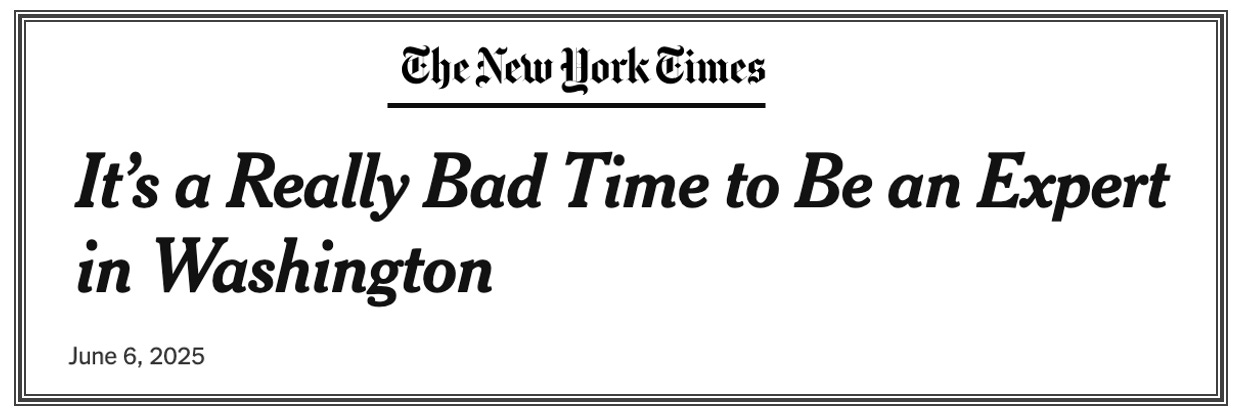
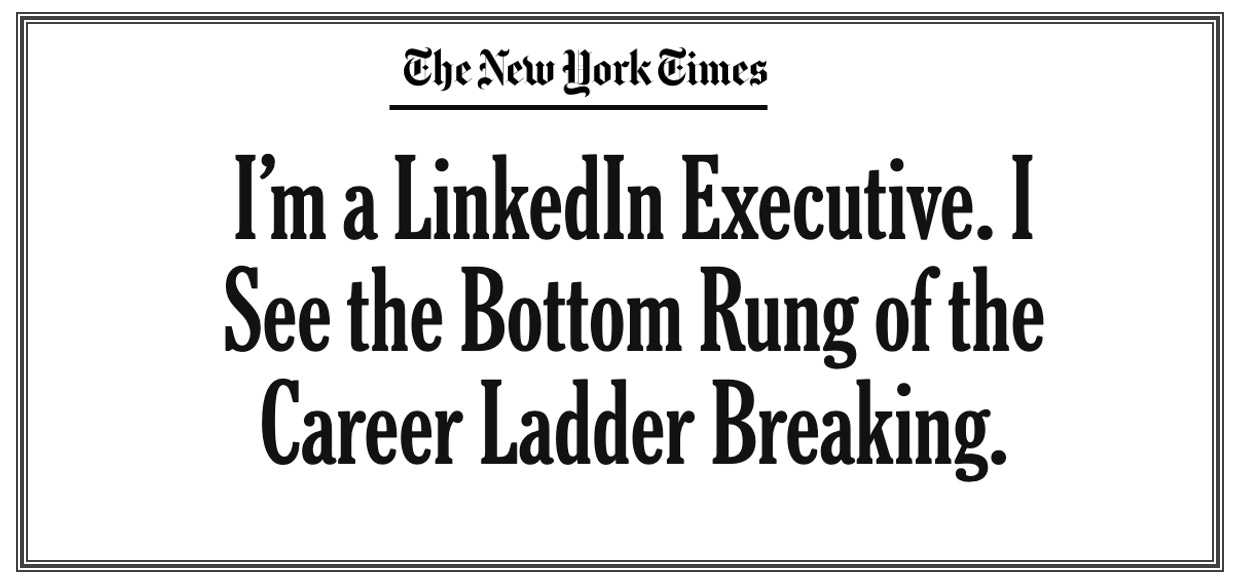
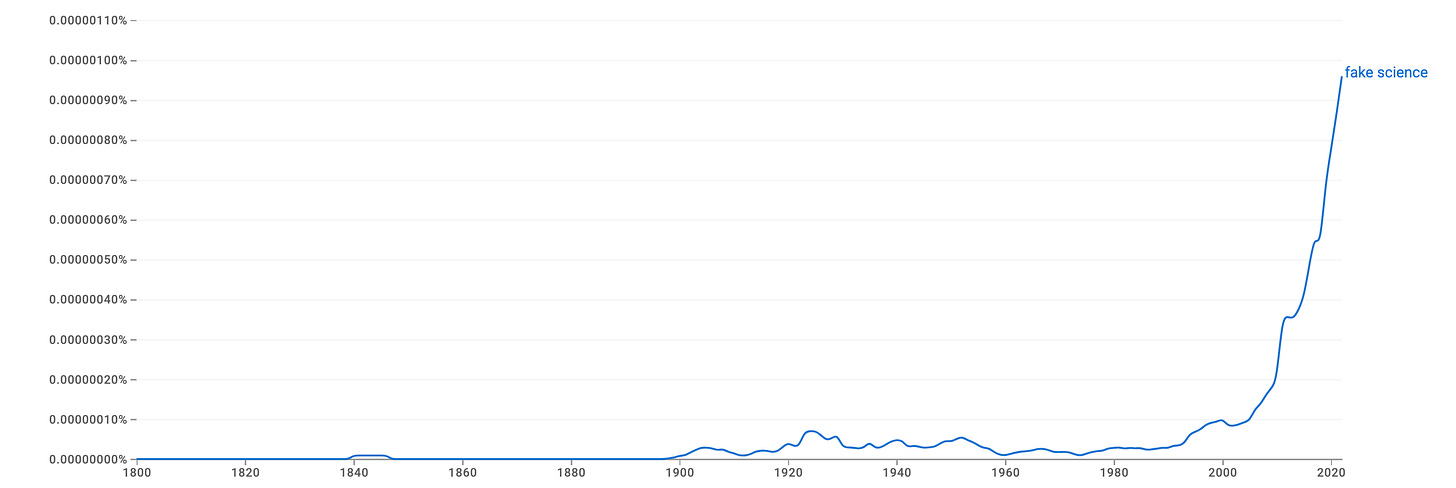
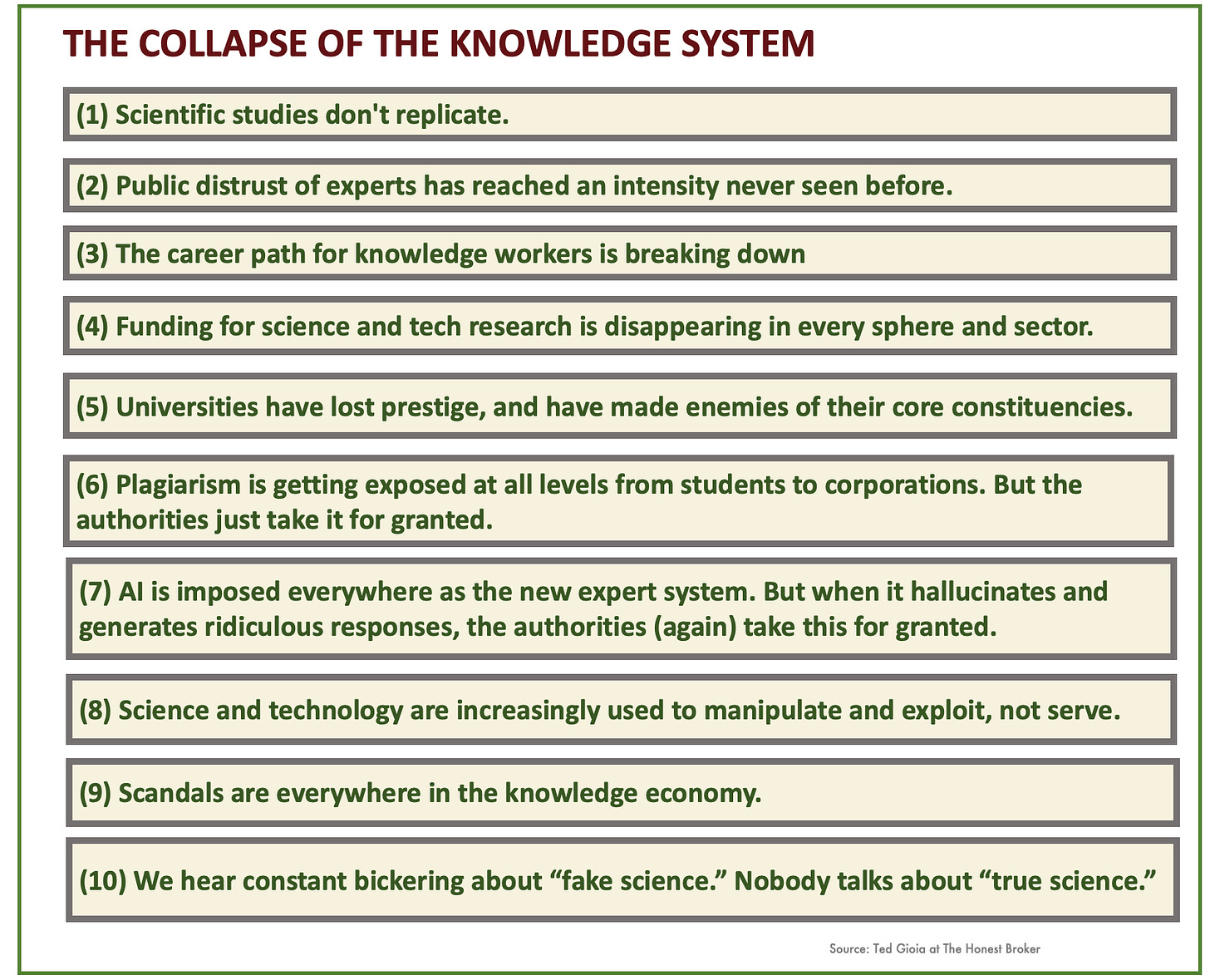





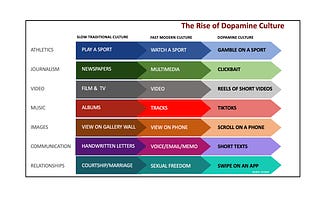
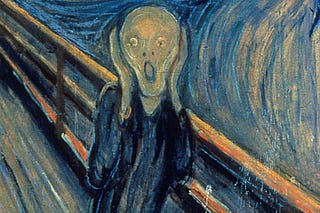

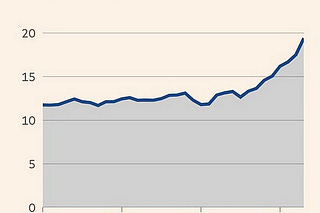






To your point: Peco and I just published "Welcome to the Analog Renaissance: The Future is Trust".
We are facing a major crisis of trust because so much of our work and creativity will be the product of AI. But we have a choice, we can start to build outposts of human trust in the digital wilderness. At School of the Unconformed we are introducing a analog-digtial hybrid model as a way to establish trust between writers and readers. For practical starting points see:
https://schooloftheunconformed.substack.com/p/welcome-to-the-analog-renaissance.
I will add to Paul Hesse’s observation: These points apply almost exclusively to America. The opposite - upticks in education, reading, thinking, understanding, public discourse, science - can be observed today on clear display in Canada and China per Paul’s note, and as well in Taiwan, Iceland, Finland, Denmark, New Zealand, Mongolia, Ecuador, Slovenia, Norway, Portugal, Lithuania, Estonia, and the Czech Republic